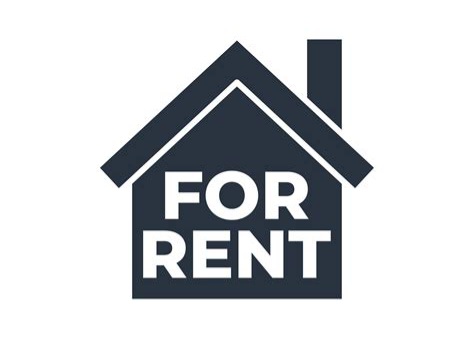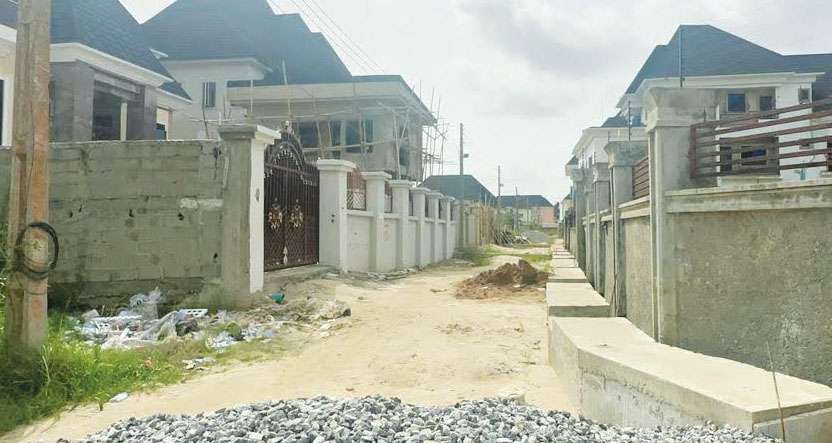Headline
Living in tears: Lagosians cry out over soaring house rents, as landlords capitalize on inflation

Residents in Lagos State and parts of Ogun State may have been caught adrift between competing demands, such as rents, school fees for the children, feeding, transportation and healthcare, which have all witnessed soaring costs and prices beyond beyond the reach of an average person.
Yet, they can not live on the streets, come what may, they must rent a house to live in. This is the result of the crash in the economy following the removal of fuel subsidy and unification of the foreign exchange rate in 2023 by the President Tinubu government. Both policies caused an astronomical rise in the prices of goods and services, particularly food items, which has brought untold hardship on families.
“My condition is worse than Dante’s inferno.”
For Akin, a videographer, nothing can be more hellish than what he is currently passing through. He describes his condition as worse than Dante’s inferno in the book: The Divine Comedy, portraying the hottest part of Hell reserved for worst sinners. From N450k he used to pay for a self- contained apartment (room and parlour) in Egbeda, since 2021, early this year, the landlord increased the rent to N700k. “When I tried to negotiate he simply threatened me with ejection,” he says, his face displaying his sadness.
Mrs. Omowunmi, a petty trader actually concludes that life has come to an end for her. Why? From N150k her family used to pay for a room and parlour at Kollington, Alagbado, last year, the landlord jerked up the rent to N350k, even when he (the landlord) knew that her husband had recently had a stroke and bedridden.
“I have never met a man as wicked as my landlord, to make ends meet for my family has become more difficult, two of our children are out of school, only one still attends classes. How much do I make from selling soup stuff and other condiments?”
Waheed, a machinist, shares a similar sentiment. “I pay ₦850,000 now for a self-contained apartment that hitherto used to be ₦500,000 in 2022. It’s not as if the apartment is spacious, for my wife and two kids, we just manage on a daily basis to live there because of lack of space,” he says. “I’ve tried to negotiate, but my landlord is not ready for that. He is only interested in money.”
Negotiation is out of it
Most tenants informed Business Hallmark that negotiation is out of it, saying making spirited efforts to negotiate with landlords is pointless. “They’ll tell you to leave if you can’t pay—there’s always someone else ready to pay more, and if you are stubborn you are threatened with imminent ejection,” Waheed, explains.
The idea of relocation is like a game of musical chairs. Landlords are the same everywhere, according to tenants, who spoke with Business Hallmark. Waheed says, “If you’re thinking of relocating what will humble you is the cost and economy of relocating, as it comes with its own headaches: agency and agreement fees, moving costs, disruption to children’s education, and long commutes. Besides, where one is relocating to may also be high.”
What is responsible for the high cost of rents
Many believe a potpourri of factors may have been responsible for the jerk up in rent cost witnessed in the last two years in Lagos and Ogun States.
What is noticed is that the phenomenon seems to have grown in leaps and bounds in Lagos mainland, without the proportionate increase in rents in high brow Lagos Island-Ajah- Lekki axis.
According to Ibrahim Lijadu, a property consultant, many people are migrating from Lagos Island to mainland, swelling up the population of the latter and thereby putting pressure on housing.” This reverse migration naturally would affect the cost of rents, that is exactly what is driving the surge in rent and the increase in the cost. I’m talking to you from what I have observed. The incessant flooding in Ajah and Lekki is also another explanation for the wave of migration to mainland.”
For Kingsley, a food vendor at Command area of Lagos,the reason for the high cost of rent can be explained in terms of the speed people are buying available land- full plot, half plot, pieces, whatever is available, and once built, the property developer jerks up the price, knowing that whatever is the cost Lagosians will pay. “.otttThere is one in my area at Command, it was just pieces, the developer managed to squeeze two bedrooms out of it, and placed N950k on it. What surprised me was that people were already bidding for it before it was fully completed. When other landlords noticed the development they jerked up their own rent to N1m.”
The uptick in rent is not limited to Lagos metropolis, even suburbs like Alagbado, Ayobo, Ikorodu and others.
Another house agent, Abdul told this medium that “some upper middle class people in areas like Surulere, Yaba, Mushin and Oshodi are moving to the suburbs to live like a king in order to escape the high cost of rent. These categories of people have forced landlords in suburbia to increase their rent too, as they are willing to pay anything, which is less than their previous rent in the mainland.
In Alagbado, Alakuko, Ajegunle axis, about two years ago, the cost of renting two bedrooms apartment was around N500k, but now it has soared to N800k and even more depending on the condition of the apartment and facilities therein.
But some people do not rule out greed. According to Akin Jimoh, a 35 year old computer engineer,” greed is a factor. These houses are not newly built, yet they keep increasing the rent. This trend is not sustainable,” he says.
He also mentioned the commercialisation of residential properties as another factor for the high cost of rents. “Most landlords and land ladies believe they will make more money by converting their properties for commercial use.”
He also blamed the agents, saying they are part of the problem as they always convince property owners to increase rent so that they can make more money for themselves.
Health implications for tenants
In many parts of the country, especially major cities, there has been a rise in the number of stroke cases and high blood pressure owing to the challenges and difficulties of life, and a lot of this is attributed to accommodation challenges.
Dr. Abayomi Onietan, a consultant at Trust Hospital told Business Hallmark that “This year alone we have seen about five patients brought here for high blood pressure occasioned by their inability to afford high rent and are subjected to constant harassment by their landlords.”
Madam Nimota told Business Hallmark that her high blood pressure began in 2023 on the heels of the loss of their means of livelihood.
According to her, she had paid N150, 000 for a room and parlour in a densely populated suburb of Agbado Oja. But in just one year, the cost of keeping a roof over her family’s head tripled, and suddenly, the threat of eviction felt more real than ever.
“The rent has now snowballed to N350,000, it’s not as if the property was renovated,” she says.
The burden goes beyond the rent itself; agreement, commission, legal, and agent fees can add hundreds of thousands of naira to already crushing costs. For many tenants, it feels like a cycle designed to trap them, one they can neither escape nor keep up with.
Pressure mounts on the Lagos State House of Assembly to intervene.
Recall that earlier in the year, Jubril Gawat, Senior Special Assistant on New Media to Governor Babajide Sanwo-Olu, gave a hint in a post on his X handle that rent regulation was “coming soon” and would be “well discussed and implemented,” after deliberations. His remark ignited renewed hope, but also birthed scepticism, among long suffering tenants desperate for relief.
Lagos tenancy bill
The Lagos State House of Assembly is said to be reviewing a comprehensive tenancy bill that aims at overhauling rent collection practices, regulate the operations of estate agents, define the rights and responsibilities of landlords and tenants, and streamline tenancy dispute resolution.
The proposed legislation, themed, “A Bill for a Law to Regulate the Relationship Between Landlords and Tenants, Including the Procedure for the Recovery of Premises in Lagos State, and for Other Connected Matters,” is set to repeal the Tenancy Law Cap. T1, Laws of Lagos State 2015.
Under the proposed bill, it would be illegal for a landlord or landlady or agent to ask a sitting tenant to pay more than three months’ rent in advance for a monthly tenancy, or more than one year for a yearly tenancy, regardless of the tenancy’s original terms.
Tenants, in turn, would also be prohibited from offering or paying rent beyond these limits.
While efforts like the Lagos State House of Assembly’s may be applauded, some believe government attempts to tackle housing issues are falling short. “They’ve made some laws, but there’s no enforcement,” says Okechukwu. “Landlords just brush aside the suggestion when you mention it to them. They will openly say, ‘Did government buy cement or build the house for me?’”








